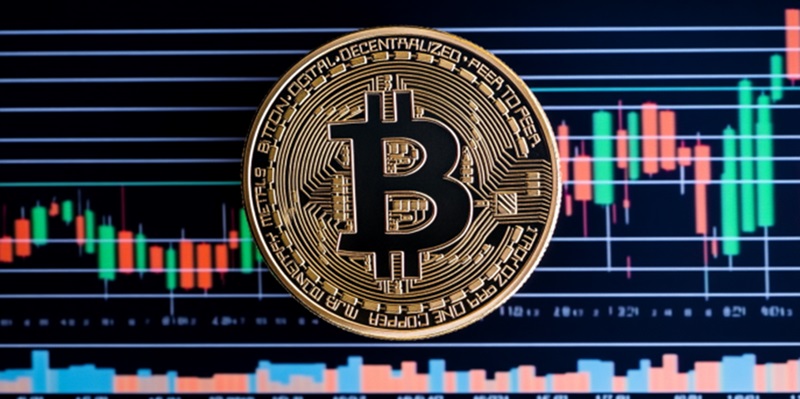Grayscale’s recent move to convert its Solana Trust into an Exchange Traded Fund (ETF) has sparked significant intrigue across the cryptocurrency landscape. The financial giant, which manages approximately $134.2 million in Solana assets, represents a modest 0.1% of the circulating SOL tokens. This strategic filing with the Securities and Exchange Commission (SEC) marks a pivotal moment, reflecting Grayscale’s broader ambitions to diversify its crypto investment offerings. The immediate market reaction was telling; within just an hour of the announcement, Solana’s market price surged by 3.62%, underscoring a positive reception from investors and signaling potential for substantial investor enthusiasm.
Grayscale is no stranger to the ETF domain, having previously forayed into this space with its Bitcoin and Ethereum ETFs. The results, however, have been a mixed bag, exemplified by the contrasting performances of these funds. The Bitcoin ETF achieved substantial success with net inflows reaching an impressive $31.06 billion, highlighting a strong investor appetite for the premier cryptocurrency. On the other hand, the Ethereum ETF did not garner the same level of traction, accumulating only $597.55 million in net flows. This variance in investor interest and market adoption between Bitcoin and Ethereum raises intriguing questions about the potential trajectory of the Solana ETF and whether it can replicate or even exceed the success of its Bitcoin counterpart.
The Role of Market Performance and DeFi Activity
Solana’s promising market performance and robust DeFi (Decentralized Finance) activity present a compelling case for its ETF potential. Over recent months, Solana has demonstrated remarkable resilience and growth, with its network activity surpassing that of Ethereum in decentralized exchange volumes. This notable metric suggests a vibrant ecosystem and heightened user engagement, factors that are critical for sustained market interest. From a modest $8 per token in December 2022, Solana’s price catapulted to an all-time high of $264 in November 2024, showcasing its explosive growth trajectory. This upward rally was further bolstered by a significant 41% price jump last month, reflecting heightened investor optimism about Solana’s future prospects.
Grayscale’s attempt to convert the Solana Trust into an ETF places the company among several other firms like 21Shares, Canary Capital, VanEck, and Bitwise, each striving for SEC approval. The move aligns with Grayscale’s broader strategy to offer more accessible and regulated investment vehicles in the cryptocurrency sector. By transitioning the Solana Trust into an ETF, Grayscale aims to provide traditional investors a more straightforward pathway to gain exposure to Solana, potentially capturing a broader investor base. Considering Solana’s recent market dynamics and its expanding DeFi ecosystem, there is substantial potential for the Solana ETF to attract considerable investor interest, provided it succeeds in navigating regulatory hurdles and market challenges.
Comparing Grayscale’s Bitcoin and Ethereum ETFs
The performance of Grayscale’s previous ETFs offers valuable insights into the potential outlook for the Solana ETF. The Bitcoin ETF’s notable inflows set a high bar, indicating strong investor confidence and widespread adoption of Bitcoin as a key cryptocurrency asset. In stark contrast, the Ethereum ETF’s lower net flows suggest a more cautious investor stance toward Ethereum, despite its significant role in the blockchain ecosystem. This divergence in performance could be attributed to various factors, including market sentiment, perceived risks, and the comparative value propositions of the underlying assets.
Despite the Ethereum ETF’s underwhelming performance, Solana’s current market dynamics suggest a different narrative may unfold. The increasing DeFi activity on Solana’s network, coupled with its significant price recovery, provides a strong foundation for investor interest. Observing Solana’s network improvements and bullish sentiment, there is optimism that the Solana ETF could follow a path similar to that of the Bitcoin ETF. However, past experiences with the Ethereum ETF underline potential initial challenges that the Solana ETF might face. Therefore, the market will closely watch how Grayscale navigates these dynamics in promoting and managing the Solana ETF.
Cautious Yet Optimistic Market Sentiment
Grayscale’s decision to convert its Solana Trust into an Exchange Traded Fund (ETF) has generated significant interest in the cryptocurrency world. Managing around $134.2 million in Solana, which is about 0.1% of the circulating SOL tokens, the filing with the Securities and Exchange Commission (SEC) marks an important step in Grayscale’s strategy to expand its crypto investment options. The market responded swiftly; within just an hour of the news, Solana’s price rose by 3.62%, showing positive investor sentiment and indicating potential for high investor enthusiasm.
Grayscale is experienced in the ETF arena, having previously launched Bitcoin and Ethereum ETFs with mixed results. The Bitcoin ETF was a substantial success, with net inflows reaching $31.06 billion, demonstrating strong investor interest. In contrast, the Ethereum ETF saw far less success, with net inflows of only $597.55 million. This difference in investor reception between Bitcoin and Ethereum raises compelling questions about the future success of the Solana ETF and whether it can match or surpass the achievements of its Bitcoin counterpart.

